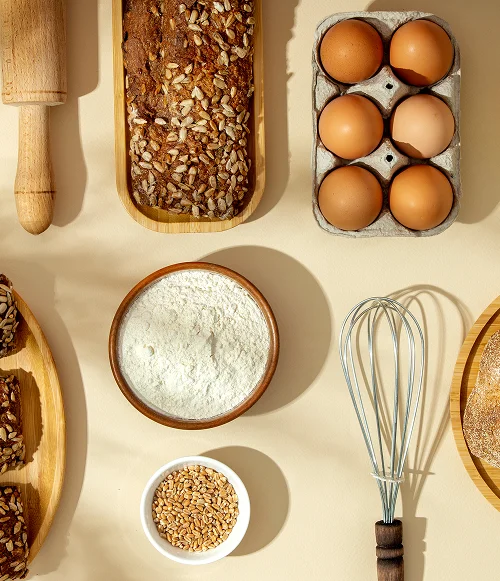The bakery industry in Ghana has undergone significant transformation over the past decade, evolving from primarily traditional bread production to a diverse sector encompassing artisanal pastries, cakes, and European-style baked goods. As we move through 2025, several key trends and challenges are shaping the industry landscape.
Market Size and Growth Ghana’s bakery sector is currently valued at approximately $1.2 billion and growing at 6-7% annually, outpacing overall economic growth. This expansion is driven by urbanization, rising disposable incomes, and changing consumer preferences. According to recent industry data, there are now over 15,000 bakeries operating across Ghana, ranging from small family operations to industrial-scale producers.
Regional Distribution While bakeries are found throughout Ghana, significant regional variations exist in market concentration and product preferences:
- Greater Accra Region: Dominated by premium bakeries and artisanal shops catering to urban professionals and expatriates
- Ashanti Region: Strong tradition of mid-sized bakeries with established customer bases
- Northern Regions: Emerging market with significant growth potential but infrastructure challenges
- Coastal Areas: Focus on tourism-oriented products and international influences
Key Challenges Facing Bakers
- Raw Material Costs: Flour prices have increased by approximately 35% over the past 18 months due to global supply chain disruptions and currency fluctuations. These rising costs have squeezed profit margins for many bakeries.
- Energy Reliability: Inconsistent power supply continues to affect production efficiency, particularly in smaller cities and rural areas. Many bakeries are investing in alternative power solutions, adding to operational costs.
- Technical Expertise: There remains a significant gap in technical baking knowledge, particularly for specialized or European-style products. Access to training and expertise is limited outside major urban centers.
- Quality Consistency: Maintaining consistent product quality in Ghana’s climate presents challenges, especially for pastry products requiring precise temperature control.
- Market Competition: The industry is becoming increasingly competitive, with new entrants targeting niche markets and established players expanding their offerings.
Emerging Opportunities
Despite these challenges, significant opportunities exist for growth and innovation:
- Premiumization: Urban consumers are increasingly willing to pay more for higher quality, artisanal products. Premium bakeries in Accra and Kumasi have seen 15-20% growth in the past year.
- Health-Conscious Options: Growing awareness of health and nutrition is creating demand for whole grain products, sugar-reduced options, and functional ingredients.
- Convenience Formats: Pre-packaged, longer shelf-life products are gaining popularity, particularly in urban areas where busy consumers seek quick options.
- Digital Ordering: WhatsApp and other digital platforms are transforming how bakeries interact with customers, creating new sales channels and marketing opportunities.
Future Outlook
Looking ahead, Ghana’s bakery sector is poised for continued growth but will likely undergo further consolidation and specialization. Successful bakeries will be those that can adapt to changing consumer preferences while managing costs and maintaining quality.
Key success factors for the coming years include:
- Investment in technical training and recipe development
- Quality ingredient sourcing and inventory management
- Energy efficiency and alternative power solutions
- Product diversification and market positioning
- Adoption of digital marketing and ordering systems
As Ghana’s bakery industry matures, the focus on quality, consistency, and innovation will become increasingly important for businesses looking to thrive in this competitive landscape.


